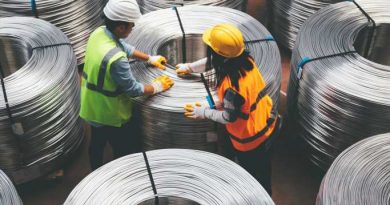Australia's new deputy PM casts shadow over 2050 net zero emissions ambition
CANBERRA (Reuters) -A climate change sceptic will be Australia’s new deputy prime minister after a leadership revolt in the coalition government’s minor party, making it harder for Prime Minister Scott Morrison to achieve a commitment of zero net emissions by 2050.
Australia’s reliance on coal-fired power makes it one of the world’s largest carbon emitters per capita, but its conservative government has steadfastly backed the country’s fossil fuel industries, arguing tougher action on emissions would cost jobs.
Morrison in recent months has been softening his position saying Australia wants to achieve net zero emissions as soon as possible, “preferably” by 2050, but that technology must lead the way not political targets.
Climate change sceptic Barnaby Joyce, who was deputy prime minister from 2016 to 2018 but resigned after an extramarital affair with a former staffer, won a National party leadership vote on Monday defeating incumbent Michael McCormack.
By convention, the leader of the rural-based National party becomes deputy prime minister in a Liberal-National government.
Joyce, who will be sworn in as deputy prime minister on Tuesday, said his party will only support an energy policy that bolsters the government’s appeal in regional Australia – which is heavily dependent on fossil fuel mining.
“I want to make sure that we have a process that we can go to places such as central Queensland (a major mining state).. and give us the very best chance of winning the next election,” Joyce told reporters in Canberra.
Joyce’s assent is likely to derail Morrison’s hope of strengthening Australia’s climate targets amid a concerted push by U.S. President Joe Biden for countries to commit to a pledge of zero net emission by 2050.
“Barnaby Joyce has made it known that he wants the National party to be independent and there won’t be any room for compromise on net zero by 2050,” said Haydon Manning, a political science professor at Flinders University in South Australia.
Joyce has previously said he was willing to vote against any government legislation that costs jobs as a result of higher climate standards.
Unlike other developed nations, Australia has refused to budge from its Paris Agreement commitment to cut its greenhouse gas emissions by 26% to 28% from 2005 levels by 2030.
Source: Read Full Article


